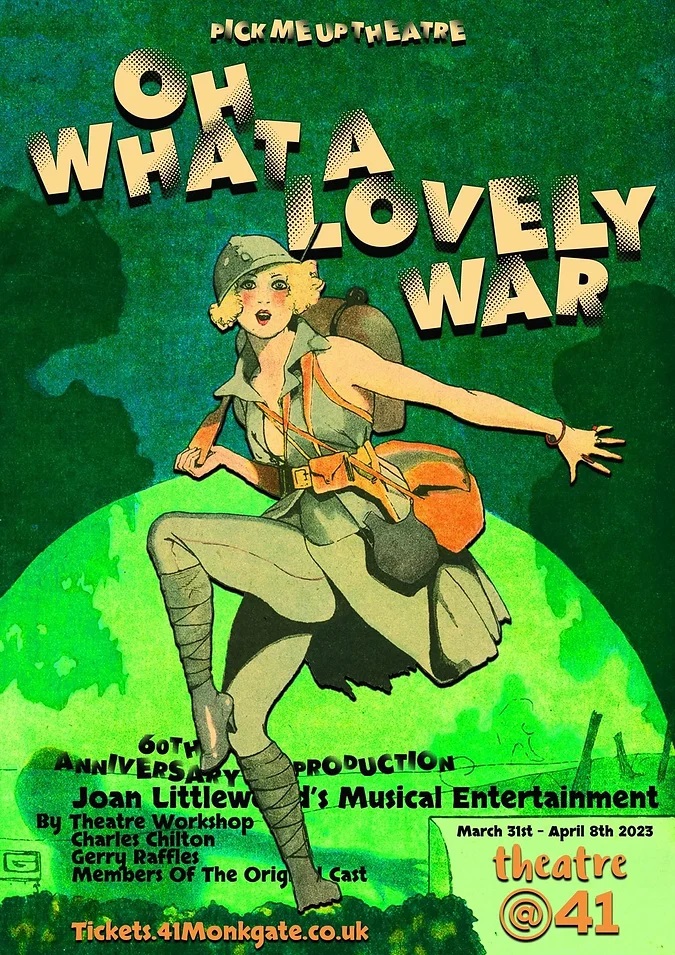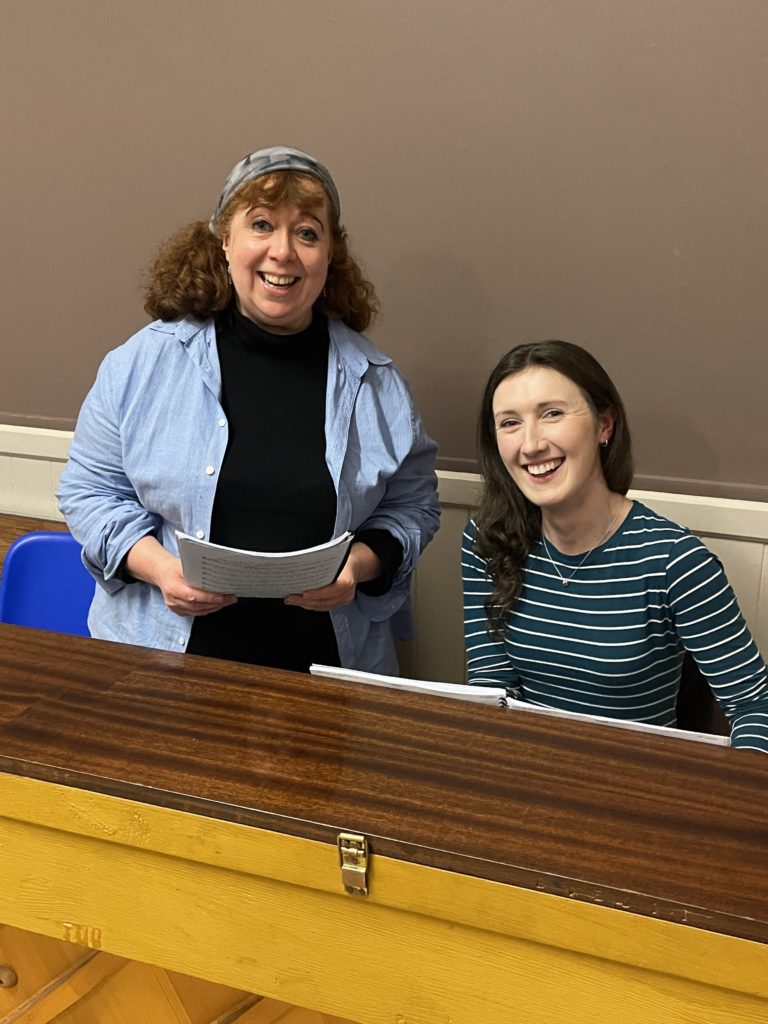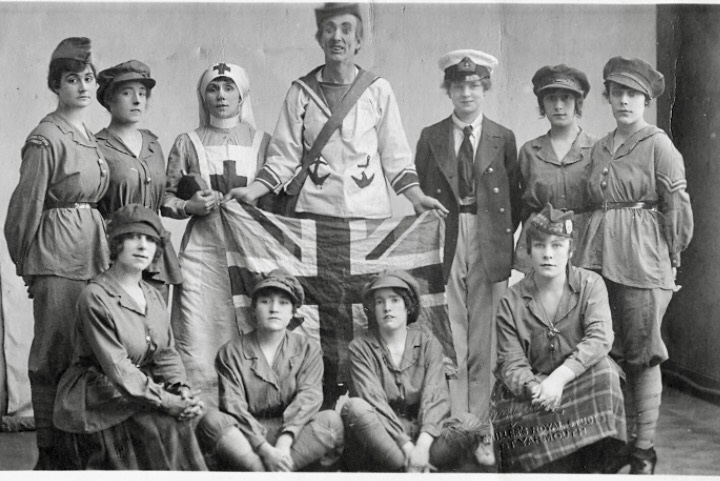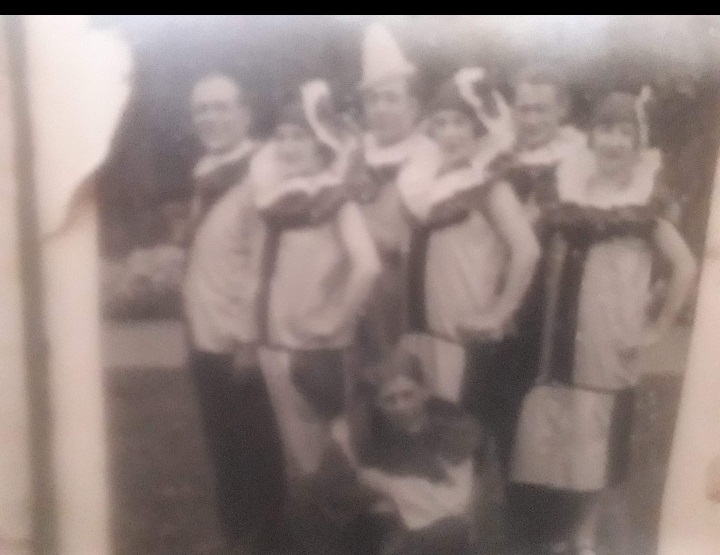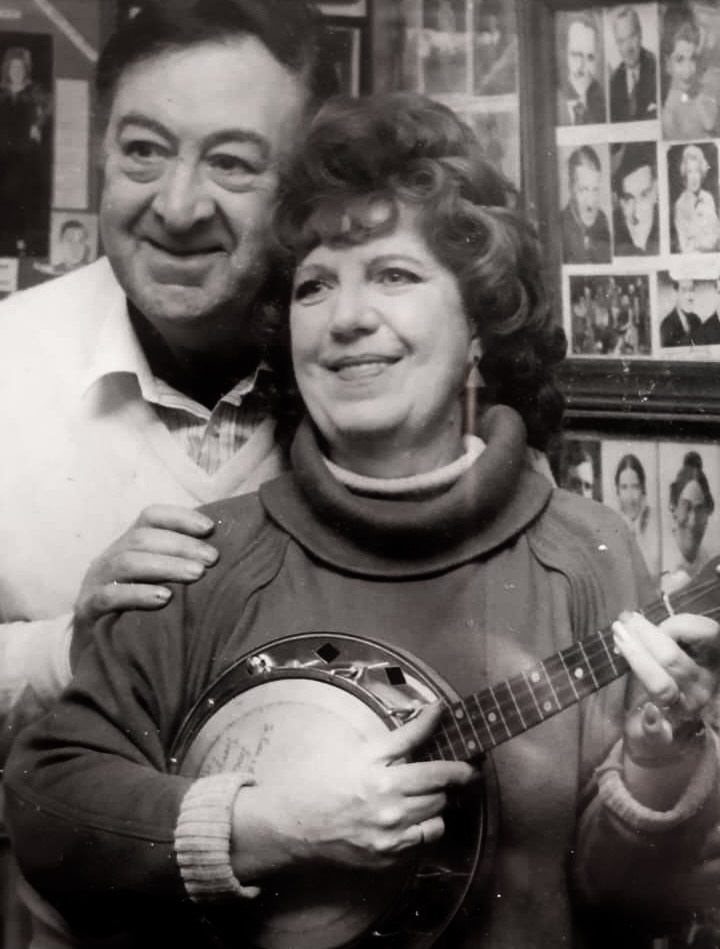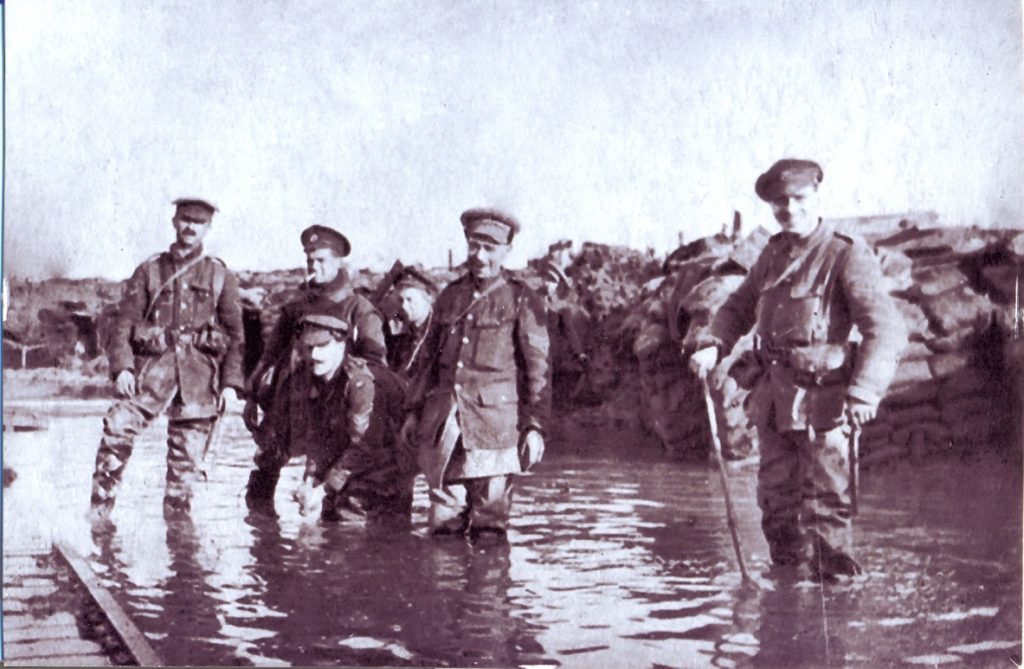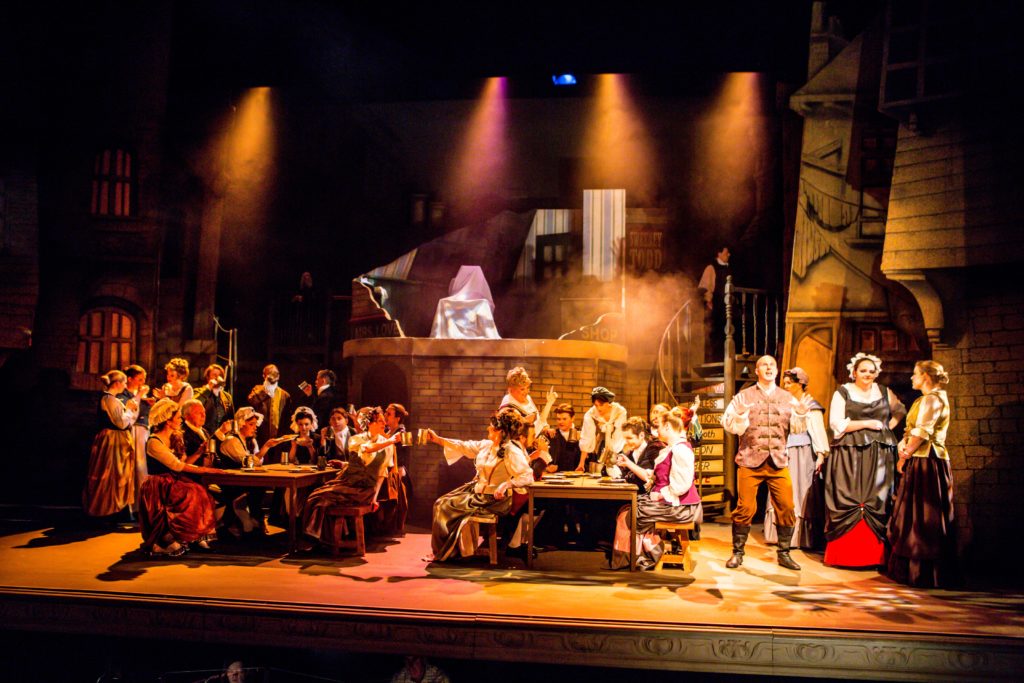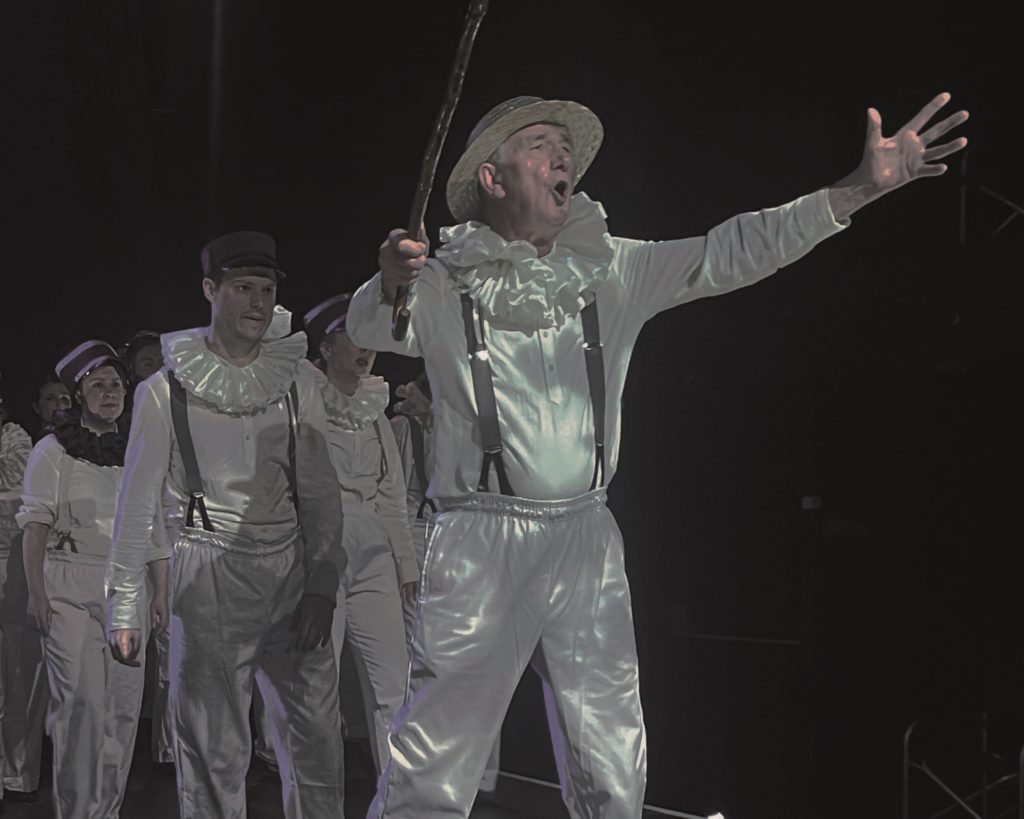
PICK Me Up Theatre are staging Oh! What A Lovely War to mark the 60th anniversary of Joan Littlewood’s Theatre Workshop premiere at the Theatre Royal, Stratford East.
Why else Robert Readman and co-director Johnny Holbek are reviving this old stager is not so clear on encountering the veteran work of Sixties’ agit-prop; rather like the surfeit of voices that are sometimes a struggle to comprehend in the absence of head microphones.
Body mics do the hard-working company no favours, especially Ian Giles’s all-important master of ceremonies, whose deadpan punchlines fall flat when dying in the muffled air. In contrast, the regular toots on his whistle could not have been shriller.
Ironically, when your reviewer – seated up on the mezzanine level – couldn’t decipher what the drill sergeant was shouting, it turns out it was supposed to be gibberish, but the joke was lost after the uncertainty caused by the earlier encounters with the lack of clarity.
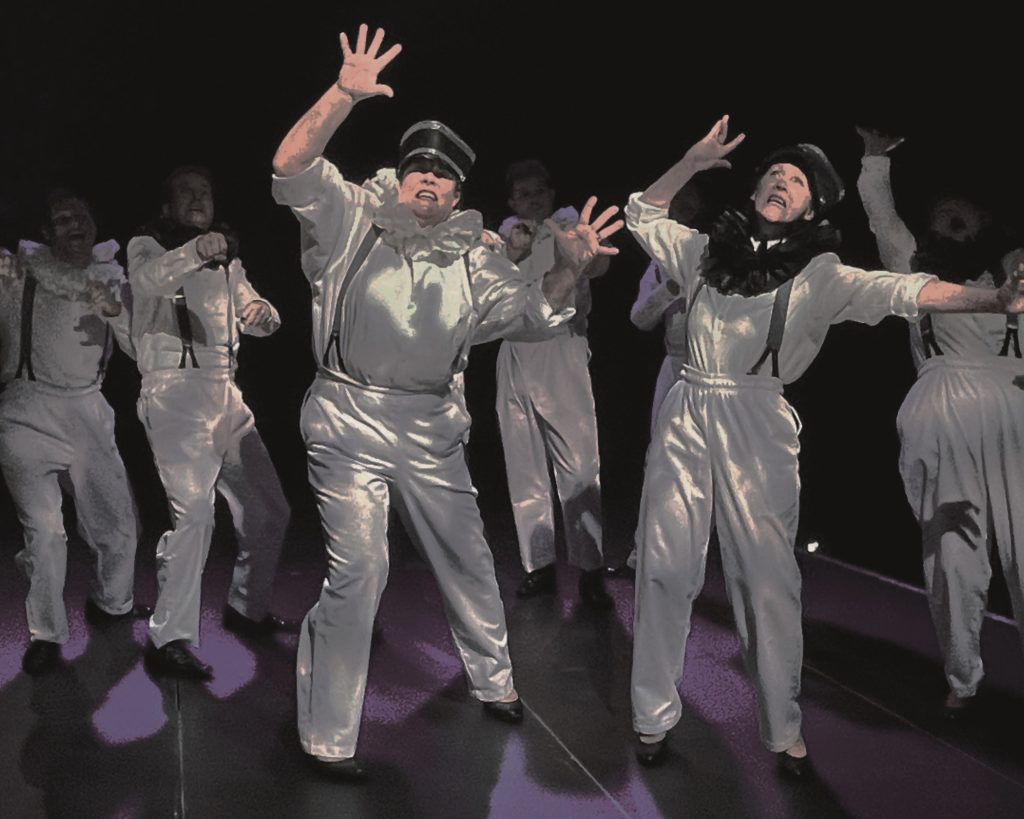
Oh! What A Lovely War, constructed as a searing satirical chronicle of the First World War, as told through songs and documents in the form of a seaside Pierrot entertainment, was a landmark in British theatre history, prompting the intrigue surrounding Pick Me Up’s revival.
Likewise, Richard Attenborough’s 1969 film account of the working-class Smith lads, Jack, Freddie, Harry and George, seeing initial hope swallowed up by the mud and stench of the trenches, resonated amid the Sixties’ vibe of Make Love, Not War.
From Blackadder Goes Forth to Michael Morpurgo’s War Horse and Private Peaceful, Sam Mendes’s 1917 to this year’s BAFTA-winning All Quiet On The Western Front, the Great War continues to provoke eloquent, elegiac reflection across the arts and literature.
Oh! What A Lovely War is closest in spirit to Blackadder in the trenches, in its sense of futility, chiming with Winston Churchill’s maxim in favour of dialogue over destruction. “Jaw Jaw is better than War War,” he forewarned, and in turn Oh! What A Lovely War has plenty of jaw jaw about war war, while making a song and dance of it with familiar music-hall songs from the Great War period and hymns fitted out with new lyrics to give them a satirical snap.
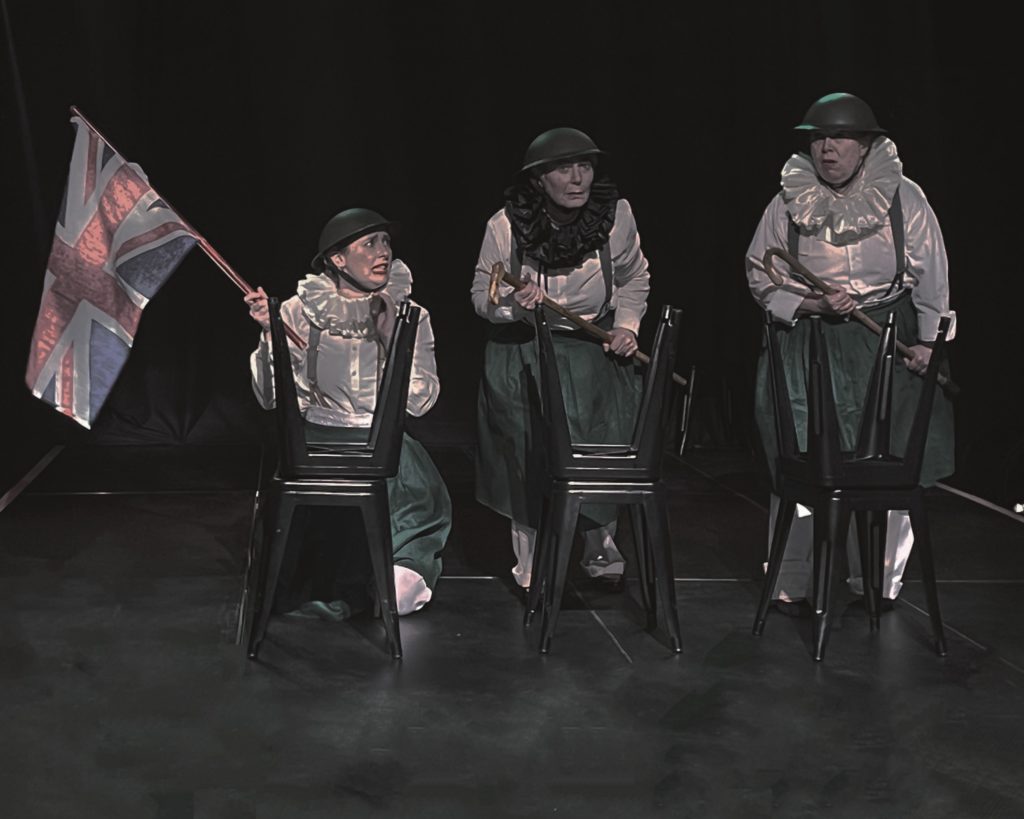
Against the John Cooper Studio’s back wall, ever more damning statistics of the body count are typed out across the screen, the factual counter to the officers’ cavalier attitude to so many wasteful deaths of the working-class cannon fodder.
They have the show’s most shuddering impact, ensuring that a sense of righteous anger prevails, as does a haunting sorrow, further enhanced by the presence of a junior ensemble.
However, the strident tones of surrealism, in part set by the Pierrot costumes with their out-of-period elasticated waists, always feels one step removed from connecting. Likewise, you can see the ever-willing cast having to push too hard to make the satire amusing in a show that starts to drag on, like the war itself.
Readman and Holbek’s period-piece production seeks to break down theatre’s fourth wall, often through Giles’s conspiratorial asides, sometimes through music-hall repartee, but the best scenes are self-contained, most notably for the Christmas Day exchange of gifts in No Man’s Land and the grotesque grouse moor shooting-party bluster among those making money out of the war (in a haunting forerunner of Covic contracts).
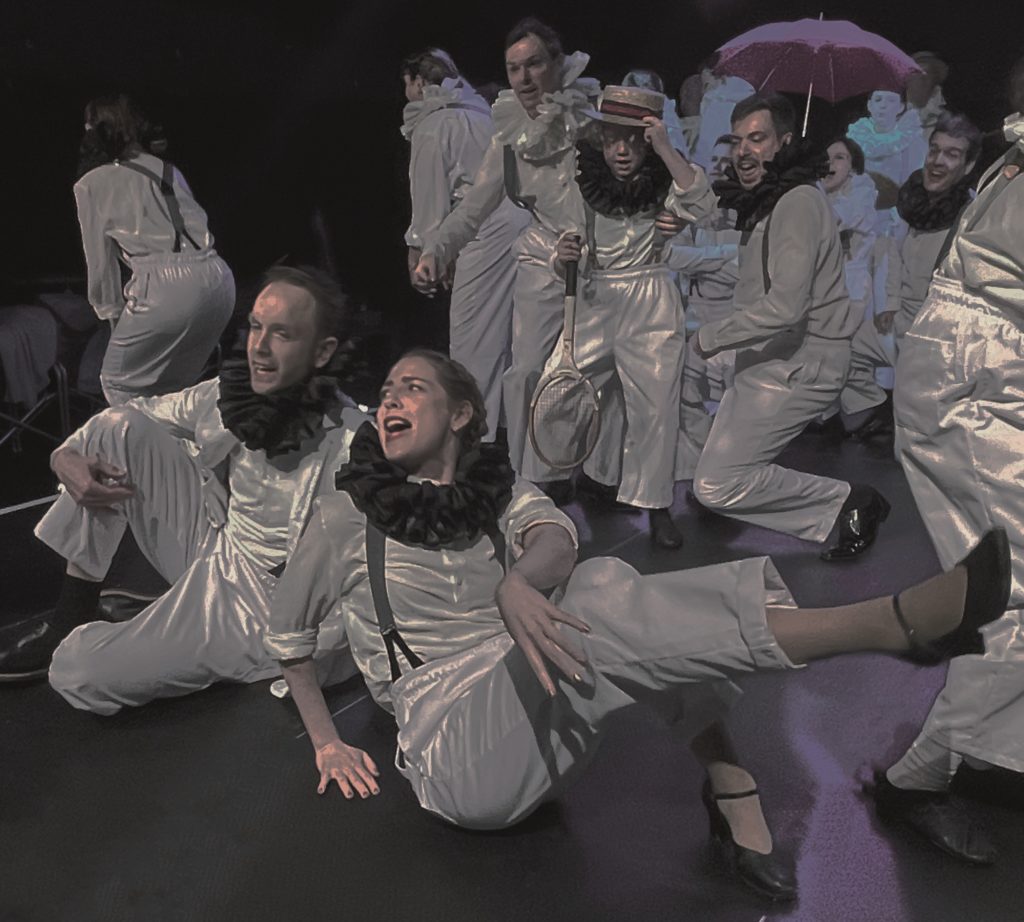
Inspired by Charles Chiltern’s radio series that combined First World war statistics with songs, Littlewood’s piece was constructed through improvisation and credited to the company of performers. In the spirit of that gestation, Pick Me Up’s multi role-playing troupe of troops is credited by a list of cast names and not by character, and it is very much an ensemble piece, teamwork to the fore, although James Willstrop, Florence Poskitt, Alison Taylor and in particular Craig Kirby stand out.
Accompanied by Natalie Walker’s piano-led band, the songs transition from hope to despair, from perky to poignant, from Belgium Put The Kibosh On The Kaiser to I Don’t Want To Be A Soldier.
Reviving Oh! What A Lovely War does not evoke nostalgia and nor should it. Instead, it feels and looks out of its time, like Richard Lester’s 1967 film How I Won The War. Some vignettes still work, elsewhere the satire has tired or lost coherence over 60 years.
What hasn’t changed? War, huh, yeah, what is good for? Absolutely nothing. Except anti-war songs.
Pick Me Up Theatre in Oh! What A Lovely War, Theatre@41, Monkgate, York, tonight (6/4/2023) and tomorrow, 7.30pm; Saturday, 2.30pm and 7.30pm. Box office: tickets.41monkgate.co.uk.
